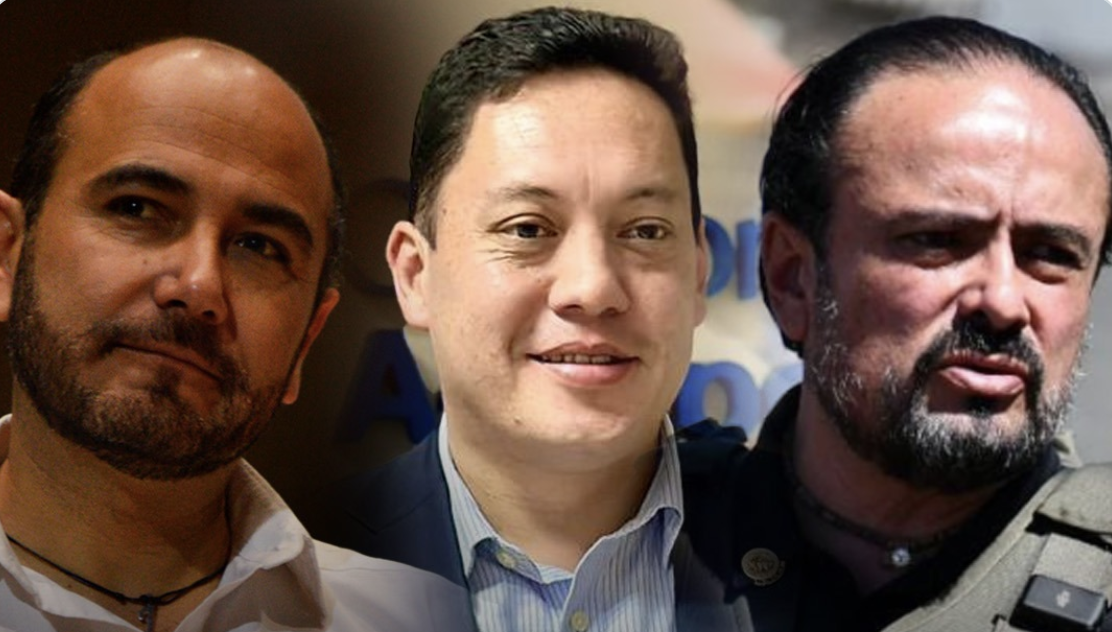The new Prefect and Governor of Azuay join the new Mayor of Cuenca as the leading politicians in the province, all promising to bring strong leadership to the southern region of Ecuador.
After the 2023 sectional elections, three prominent figures, Cristian Zamora, Juan Cristóbal Lloret, and Paúl Carrasco, have emerged as the dominant political leaders in Azuay. Although they begin this period with a truce for the province, each figure is also pursuing their own private interests.
The change in leadership has created a new political scenario in Azuay, with these three strong figures currently sharing the limelight. However, each of them has independently expressed their desire to lead the province.
The trio consists of Cristian Zamora, the mayor of Cuenca; Juan Cristóbal Lloret, the prefect of Azuay; and Paúl Carrasco, the governor of the province. All three possess extensive political experience, with Carrasco being the most seasoned, having served as prefect of Azuay on three separate occasions.
Zamora and Lloret seek regional leadership
Lloret launched his career within the Citizen Revolution and has held positions as governor and assembly member twice. Zamora, on the other hand, became mayor as a relative unknown, but he has been involved in public office since 2014.
While each leader champions their own political agenda, they share the belief that Cuenca and Azuay have lacked effective leadership in recent years. Lloret emphasized the need to regain local leadership and raise a voice from the Austro during the campaign. Zamora, too, promised that Cuenca would once again have a mayor with strong leadership.
Upon winning the elections, Zamora and Lloret wasted no time in asserting their influence. During a meeting with more than 200 mayors and prefects, Zamora spoke on behalf of the entire Austro and requested that President Guillermo Lasso declare a road emergency for the historically neglected southern region, not just for Cuenca and Azuay.
Lloret, meanwhile, began negotiating with the government to address the pressing road issues, which were among the main concerns of Azuayans. He also participated in mobilizations for security and attended the May Day march.
Carrasco has local popularity
Soon after assuming office, a third figure, Paul Carrasco, entered the scene, further adding to the shared leadership of Zamora and Lloret. Carrasco, now a representative of the government, was brought in to reinforce the government’s image in the province. Despite not winning his last two elections (most recently campaigning for President in 2021).
Within a short period of taking on his new position, Carrasco appeared before a crowd from the Governor’s Office balcony and conducted police operations in popular areas of Cuenca, enhancing his visibility. While he has not disclosed his future political plans, his name often emerges during electoral processes; he remains popular among locals and is a significant player in the region.
Calls for united administration
Despite their different political affiliations, the new authorities of Cuenca and Azuay have established a truce. The last time that these three roles worked together was in 2019 when the mayor, prefect, and governor all belonged to the same party (Correísmo). Also, past animosities, such as the conflict between Carrasco and Lloret over the former’s opposition to Rafael Correa’s regime, have been set aside.
The three leaders have pledged to work together. Zamora speaks of an “institutional embrace,” Lloret aims for a “great commonwealth,” and Carrasco calls for a “governance pact.” They emphasize the need to set aside personal interests, ego, and partisanship to ensure a united administration for Cuenca and Azuay.
However, alongside their shared interests, the leaders also have specific objectives that rely on their individual leadership, especially with upcoming elections on the horizon.
Lloret, as the provincial director of the Citizen Revolution, is responsible for strengthening the organization and managing the Prefecture. Carrasco must address the concerns of Azuayans and prevent an uprising against the government, as anticipated by citizen sectors and local authorities. Zamora must show that he will bring fiscal responsibility to Cuenca as he promised during his campaign for mayor.


0 Comments